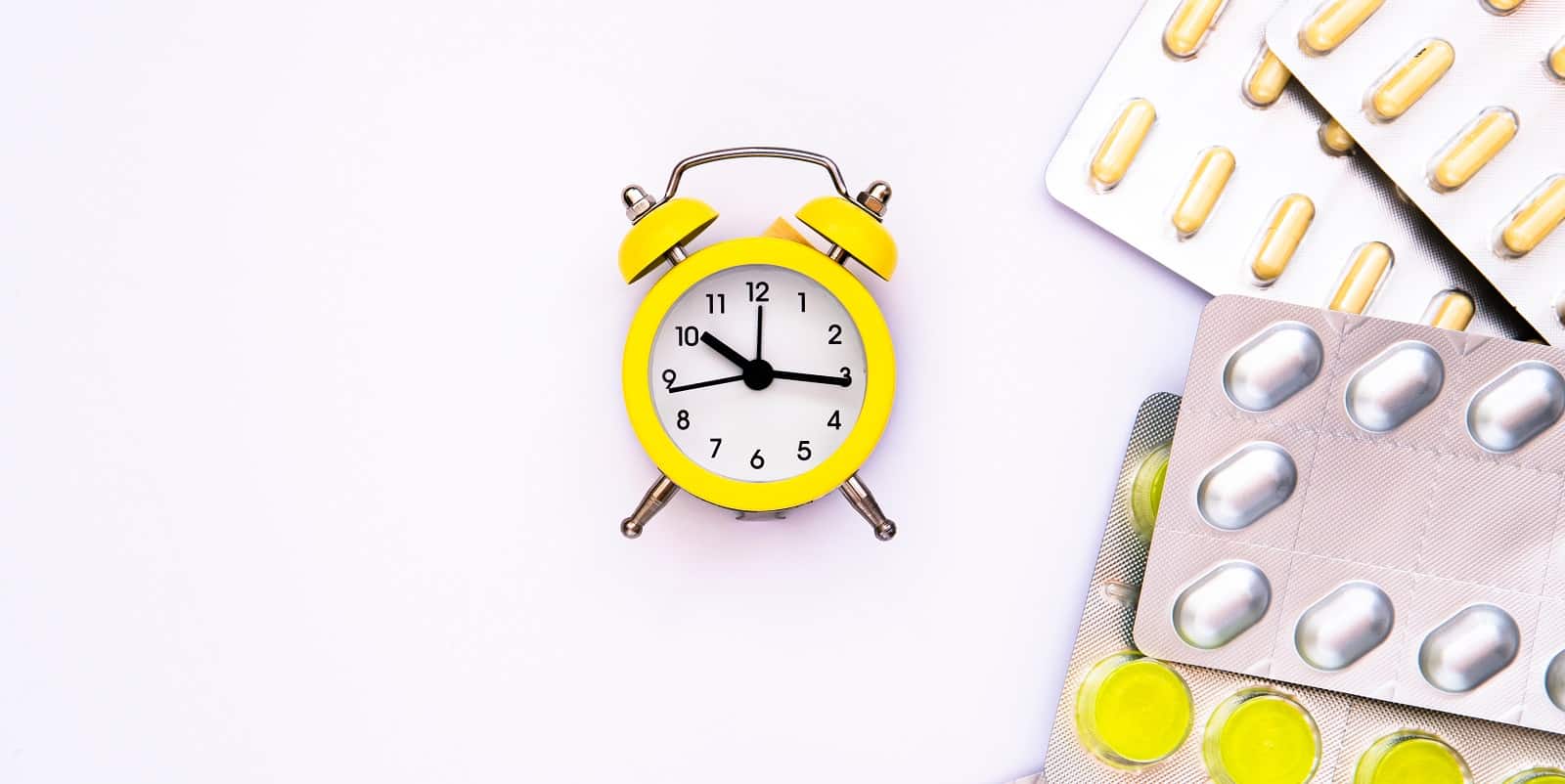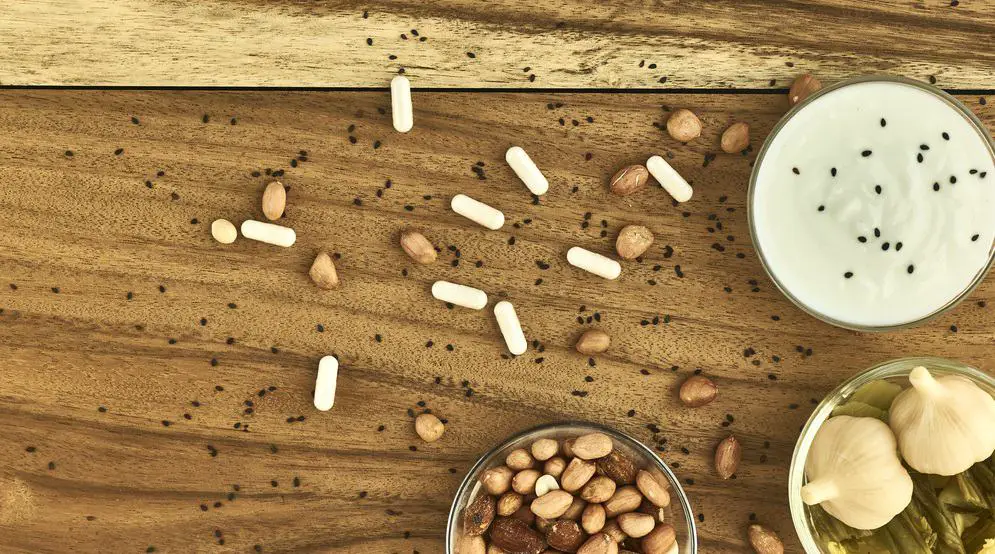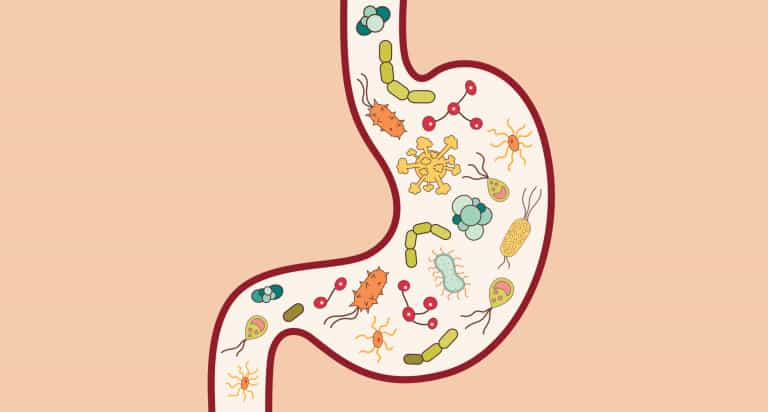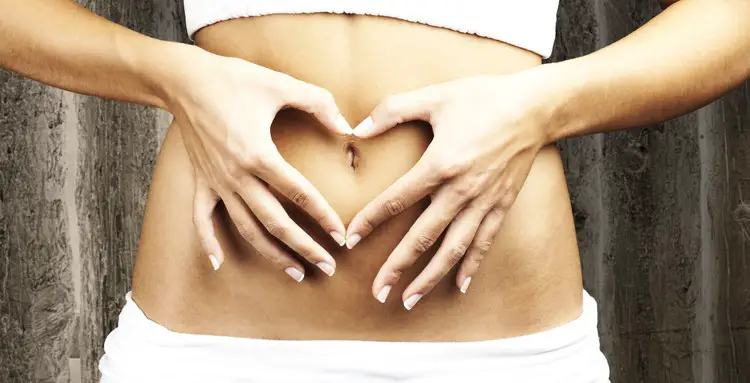When to Take Probiotics: 12 Times When It Really Helps
Asking when is the best time to take a probiotic is a good question that goes beyond a simple: anytime is a good time for probiotics.
Taking a quality probiotic supplement is indeed an excellent way to keep your body healthy. The microorganisms known as “good” bacteria live in the intestinal tract, and they maintain a balanced environment there – one that is critical for your overall health.
You do get probiotics in some of the foods you eat. Among them are kimchee, sauerkraut, kefir, and yogurt, but taking a probiotic supplement will ensure that your body gets all the good and friendly bacteria it needs to keep the gut flora in balance.
Most supplements that feature multiple strains of probiotics include Bifidobacterium and Lactobacillus in the mix. These living microorganisms are very helpful bacteria for the body. They help nearly all aspects of health in which probiotics affect.
When to Take Probiotics?
Probiotics can help your overall health by keeping more healthy bacteria than harmful bacteria in your digestive tract. However, there are certain times when they are even more beneficial.
If you’re experiencing any of the below, probiotics will definitely benefit you even more than the average person.
1. Irritable Bowel Syndrome (IBS)
IBS, a gastrointestinal tract disorder, can cause many noxious symptoms, including abdominal pain, gas, bloating, constipation, or diarrhea. Good bacteria can reduce those symptoms.
In a recent placebo-controlled, double-blind trial, a multiple strain supplement of probiotics resulted in a significant improvement in typical IBS symptoms over three months. The most commonly used multi-strain probiotics for IBS include Bifida bacteria.
2. Yeast Infections & Candida
Probiotics work quite well in treating and preventing yeast infections and overgrowth of Candida yeast. These medical issues can occur inside or outside your body, including the vagina, skin flaps, and the mouth.
Yeast infection symptoms include white spots or white tongue or vaginal odor, pus, and discharge. You may experience diarrhea, as well. If you are experiencing these symptoms, contact your physician about using probiotics to kill the bad bacteria.
The strains of probiotics that work best for Candida and yeast infections include Lactobacillus acidophilus, Saccharomyces boulardii, Lactobacillus Plantarum, and Bifidobacterium bifidum.
3. Antibiotic Associated Diarrhea and Other Drugs that Affect the Gut
Probiotics help in the prevention and treatment following a course of antibiotics or other medications. You probably have noticed after taking antibiotics that you sometimes developed diarrhea. Research shows that taking probiotics helps treat antibiotic associated diarrhea.
The most often used probiotics for diarrhea from medications include several strains of Lactobacilli and Bifidobacteria. Lactobacillus rhamnosus GG, for example, has been found to effectively treat diarrhea in antibiotic patients along with the discomfort caused by other gastrointestinal disorders.
Remember, probiotics are simply living organisms, and when they are ingested, they can help normalize the otherwise unbalanced gastrointestinal flora found in your gut.
4. Skin Conditions
Acne is a very common skin condition that probiotics can influence. It doesn’t seem like the skin would be closely linked to the gut, but it is. The “gut-skin axis” closely links the gut and the skin.
Gut inflammation may cause skin inflammation, which manifests itself as dermatitis, eczema, psoriasis, and acne. It is the ability to reduce inflammation that allows probiotics to aid in the healing of skin problems.
Some of the probiotics most commonly used for skin conditions include Saccharomyces cerevisiae yeast, Lactobacillus acidophilus, and Streptococcus thermophiles.
5. Diabetes
Although more evidence needs to be gathered, a 2009 study suggests that the flora in the intestines has significant effects on the key factors of type 2 diabetes, including body weight, insulin resistance, and inflammation. Maintaining a good balance of bacteria in the gut is an important part of diabetes prevention.
Probiotics have shown an ability to reduce serum cholesterol, and this improves insulin resistance. Research suggests that taking probiotic supplements can lower insulin resistance onset, reducing the incidence of hypertensive conditions related closely to diabetes.
Some of the probiotic strains used in preventing diabetes include Bifidobacterium spp, L. lactis, L. acidophilus, and L. casei.
6. Travelers’ Diarrhea and Illness
A probiotic supplement is the first thing you should pack when you’re getting ready for a trip, especially if it is overseas or in a developing nation.
When you are in less developed countries, you are at risk from many more microbes than your body is used to encountering. Research shows that probiotics can prevent illness or lessen or alleviate the symptoms.
Since travel can frequently include air travel, eating out, lack of sleep, and change of time zones, it’s not surprising that these stressors lead to travelers’ diarrhea and other ailments that occur when your immune system is not functioning at its best.
One of the worst problems is traveler’s diarrhea, which is sometimes called Montezuma’s revenge. This is a quick way to ruin your vacation!
The best probiotics for travel most commonly used for traveler’s diarrhea and related symptoms include Bifidobacterium bifidum, Lactobacillus acidophilus, and Saccharomyces boulardii.
7. Overcome Anxiety and Depression
No one wants to take antidepressants, but for many, it keeps them functioning on a daily basis. The world today is full of stress. In a 2017 study, B. longum and L. helveticus effectively reduced depression and anxiety symptoms in patients diagnosed with clinical depression.
8. Diverticulosis & Diverticulitis
It has been discovered that probiotics are better than drugs for diverticular disease. Patients can benefit from probiotic supplements to fight diverticulosis and diverticulitis.
A 2006 study compared the standard medication for treatment (mesalazine), a placebo, and a probiotic (L. casei) in a placebo-controlled, double-blind study of over 200 patients. The researchers found that L. casei was just as effective as the standard medication, and the two combined worked even better.
9. Ulcerative Colitis
Ulcerative colitis is another condition that may benefit from the use of digestive enzymes and probiotics supplements. The probiotics you take act as a barrier and line your bowels, so the harmful bacteria don’t reach the walls of your intestines.
While studies have found that probiotics for ulcerative colitis did not necessarily shorten the duration of the symptoms, studies found that those taking probiotics did report fewer symptoms during those flare-ups and the symptoms they were experiencing were less severe.
It is also necessary to keep in mind that there is a possibility that probiotics can worsen ulcerative colitis in some people. If you have severe colitis and use probiotics and no other well-known effective therapies, you may cause more harm than good while trying to find the appropriate treatment.
Depending on your gut microbiome that contains 10 to 100 trillion bacteria, probiotics can make your symptoms worse and can lead to increased gas, bloating, and looser stools.
10. Chemotherapy Side Effects
Many cancer patients being treated with chemotherapy develop chemo-associated diarrhea. Men who are undergoing chemotherapy for prostate or other cancers can benefit from probiotics for this type of diarrhea.
A study in the British Journal of Cancer discovered that patients treated using chemotherapy who were administered L. rhamnosus GG had fewer stomach problems. Their diarrhea was not as severe as compared to those who did not receive the probiotic.
11. Weakened Immune System
Various strains of probiotics have shown the ability to boost immune function and prevent common infections, like the flu and the common cold.
In a 2006 systemic review, authors found that among adults and children with respiratory tract infections, the use of Bifidobacterium and Lactobacillus strains allowed fewer days missed from work or school and fewer days with a fever.
12. Leaky Gut
Leaky gut means increased intestinal permeability, which often occurs when the tight junctions of the intestinal walls loosen. When this happens, harmful bacteria, toxins, and undigested food particles can easily pass into your bloodstream.
Leaky gut can cause inflammation throughout the body and can trigger an immune system response. Some symptoms one might experience due to a leaky gut include bloating, food sensitivity, fatigue, digestive issues, and skin problems.
To help with the problems associated with leaky gut, you can add foods to your diet that contain friendly bacteria like probiotics and prebiotics. These can help promote healthy bacteria in the gut.
When Is the Best Time to Take a Probiotic?
It’s a common misconception that you should take your probiotic supplement before your first meal of the day.
When probiotic bacteria survival was studied, it remained more useful within a half-hour before a meal, during a meal, or with a fat-content beverage. Consuming a healthy meal along with your supplement gives the good bacteria an optimal environment in which to work and multiply.
Another common question is if you should take probiotics supplements on daily basis. The general answer to this question is yes. Probiotics supplements are largely found to be safe and effective and are often recommended for daily use.
However, you need to understand that probiotics are a natural dietary supplement and are not medicine you can use to treat certain conditions.
Before starting any supplements, you should always discuss the benefits and risks with your healthcare provider to find what will best support your digestive health and immune system.
FAQ
Still have questions? Check out our FAQ below for more helpful information regarding probiotics and your health.
What is the difference between a prebiotic and a probiotic?
A probiotic is a living strain of bacteria that works with the good bacteria in your gut and digestive system. Prebiotics are specialized plant fibers that act as the food for the good bacteria and stimulate growth among the preexisting good bacteria in the gut.
How long does it take probiotics to start working?
If you choose to start taking a high-quality probiotic that is multispecies and multi-strain, then you can begin to notice improvements as soon as the first one to two weeks. However, depending on how sensitive you are, you may notice an improvement in your digestive health within a few days.
When should you take supplements for your gut health?
The time of the day you take your supplements for gut health is really up to you and your own preferences. However, many experts believe they will be most effective if you take them at least thirty minutes before eating and even more effective in the morning before you eat breakfast.
Disclaimer: While our team of medical expert writers makes every effort to convey the correct, relevant, and most up-to-date information, you should never disregard advice given to you by your medical practitioner or delay seeking medical assistance because of something you have read on Gutsify or received in correspondence from Gutsify. Please refer to our Terms and Conditions.










